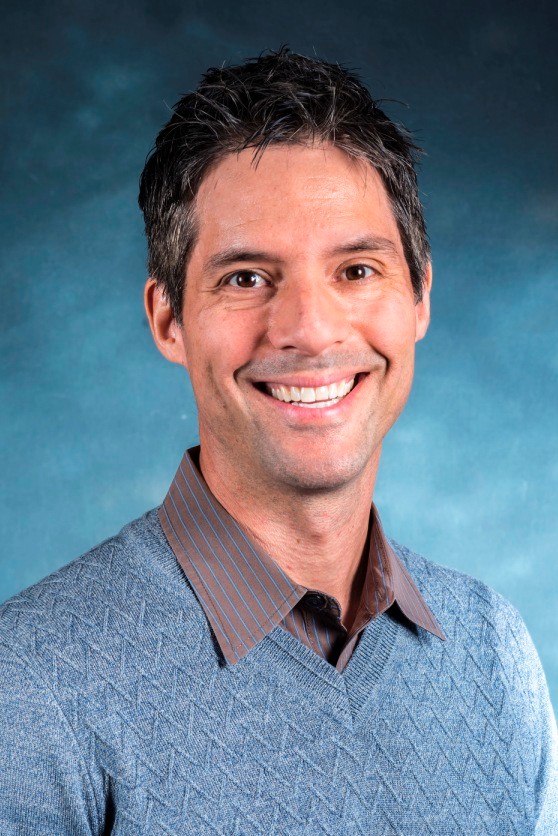Boston College's Core Curriculum Renewal initiative is in its fourth year of offering new Complex Problems and Enduring Questions courses. Many faculty have embraced the opportunity to teach a CP or EQ course, and have created innovative new approaches, say core administrators, who report a heightened student interest in the core that is reflected in impressive numbers and positive responses.

Brian Gareau
With this transition in progress, Morrissey College of Arts and Sciences Associate Dean for the Core Brian Gareau notes that he and his colleagues are working to ensure that students experience the full benefits of the core. For example, students may take CP or EQ courses in both the fall and spring semesters and also enroll in the Perspectives class even if they are taking CP or EQ courses in the same semester.
“It is exciting that students are talking about the core with one another alongside other programs such as The Courage to Know and Freshmen Topic Seminar; they are all interconnected,” says Gareau, an associate professor of sociology and International Studies, who became associate dean for the core this past spring. “Students often approach me to discuss what they learned and to tell me how much they enjoyed these courses.”
Boston College began its effort to renew and reinvigorate the undergraduate Core Curriculum in the fall of 2012 with meetings among faculty, administrators, staff, students, and other stakeholders in the University about the core, which had last been revised in 1991. Among other changes, the initiative led to the establishment of a University Core Renewal Committee to provide governance for the core. That same year, 2015, saw the start of a pilot program to introduce new interdisciplinary core courses in two categories: Complex Problems, which are large team-taught, six-credit classes that address a contemporary problem from an interdisciplinary perspective, and Enduring Questions, linked pairs of three-credit classes that meet separately and are each taught by a faculty member from different departments but are connected by a common topic and set of universal questions as well as some shared readings and assignments.
Approximately 2,200 first-year students have taken the new core courses, with an additional 475 students expected to do so next spring; by then, 113 faculty from all BC schools and most Morrissey College departments will have participated in the Core Renewal.
But Gareau notes that statistics only express part of the initiative’s success, through its key role in supporting BC’s 21st-century vision of a liberal arts education in the Jesuit, Catholic tradition.
“Core Renewal is not limited to the popularity of, and enthusiasm for, CP and EQ courses,” he explains. “Departments and programs are evaluating their approach to the core, and coming up with new courses or modifications and restructuring of existing ones that reflect the intent of Core Renewal.”
As an example, Gareau points to the International Studies Program, which has introduced a new foundational course, built on the CP model, that satisfies the Core Curriculum requirements for cultural diversity, history, and social science.
It’s been encouraging to see how faculty from such different disciplines have found connections around which to share their expertise, and give students the opportunity to see compelling issues in multiple dimensions. This interdisciplinary approach has moved not only beyond the Morrissey College to BC’s other undergraduate schools, but now to the graduate/professional schools.
CP and EQ courses to be offered this coming spring once again reveal the reservoirs of imagination among BC faculty, according to Gareau. In the EQ category are the paired classes such as Modern Science and Ancient Faith, which examine the religion/science question through philosophical and neuroscientific perspectives taught by Daniel McKaughan (Philosophy) and Jessica Black (Social Work). Powering America: Energy, Tech, Environment, a CP course led by John Ebel (Earth and Environmental Sciences) and Conevery Valencius (History), explores U.S. energy—how it is produced, distributed, and used; how technological and economic choices have shaped energy systems and affected the environment; and what the future may hold as a result. Jonathan Krones, a visiting assistant professor and Core Fellow, teaches the lab for Powering America.
The EQ pairing of Inspiration in Imagination (Michael Naughton, Physics) and Reading the Impossible Universe (Joseph Nugent, English) delves into the role of imagination in science and the humanities, and how one can inform the other, while God and Politics (Alice Behnegar, MCAS Honors Program) and God and Love (Christopher Constas, Morrissey College Honors Program) focus on conceptions of the divine in the realms of love and desire, and justice and politics.
“It’s been encouraging to see how faculty from such different disciplines have found connections around which to share their expertise, and give students the opportunity to see compelling issues in multiple dimensions,” says Gareau. “And this interdisciplinary approach has moved not only beyond the Morrissey College to BC’s other undergraduate schools, but now to the graduate/professional schools.”
Gareau believes that another factor in the success of Core Renewal is the introduction of the Core Fellows Program, which enables early-career scholars from across the humanities, social sciences, and natural sciences to develop their research and teaching potential. Fellows are attached to home departments as visiting assistant professors and typically teach lab sections for CP courses and an elective in his or her field, and pair together to design and teach an EQ course.
“The Core Fellows are chosen via a national search, and must have a solid track record in research and teaching,” he notes. “Through the program, BC students learn from outstanding young scholars who experience what it is like to teach in a Jesuit institution. There is benefit all around.”
Learn more about the Boston College Core Curriculum, and the Core Renewal initiative, at bc.edu/core.
Sean Smith | University Communications



